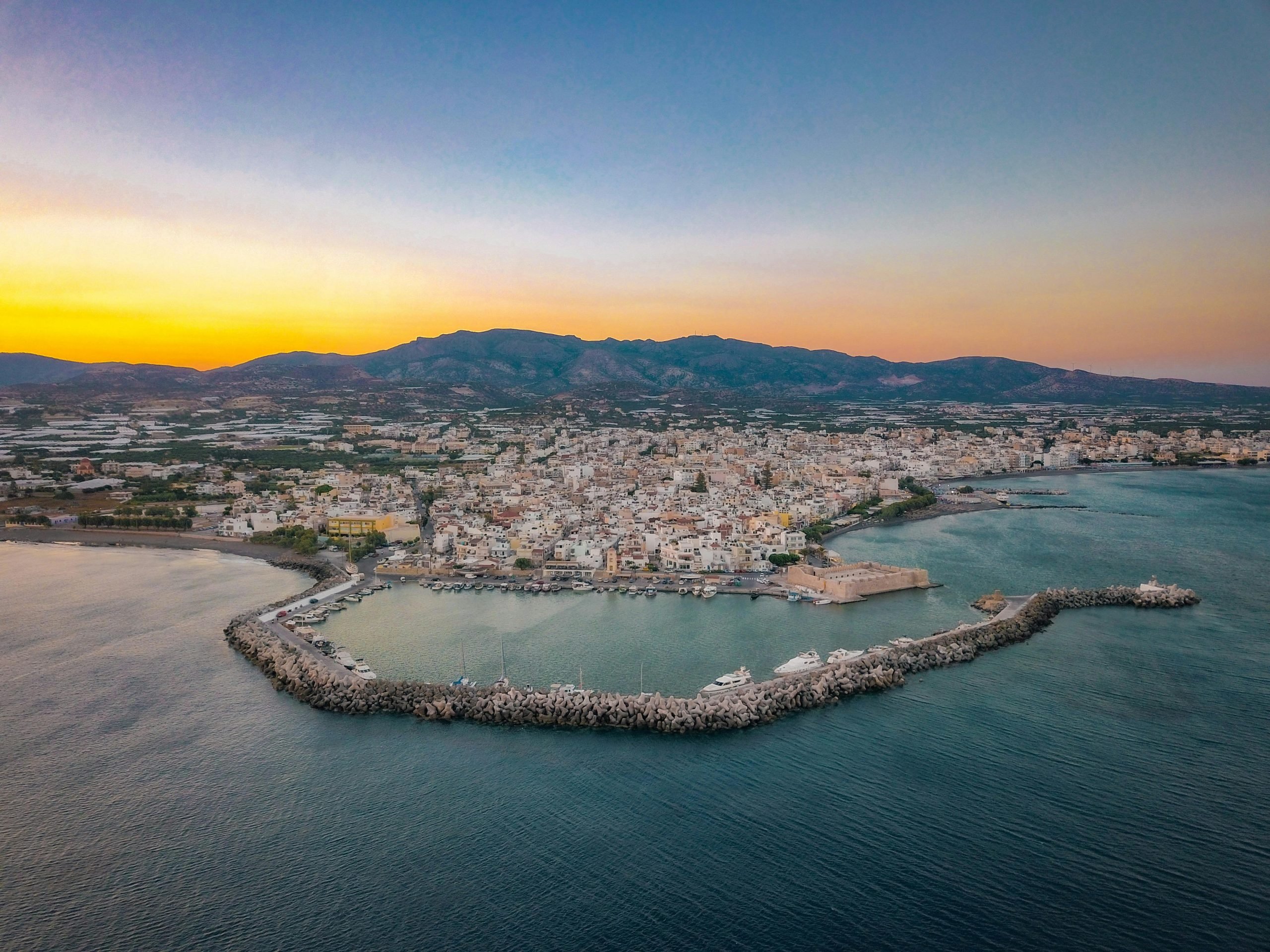Few things are more Greek than olive oil. Homer called it “the golden liquid,” and Hippocrates, the famous doctor of ancient Greece, gave olive oil to his patients. Today, olive oil is still a large part of Greek daily life, is one of Greece’s largest exports, and is always a part of a traditional taverna meal in Greece’s island villages.

Benefits of Greek Olive Oil
Olive Oil is ideal for roasting, frying, baking, or sautéing, and it’s famous for its antioxidants and healthy fats. It has been studied for its many health benefits, which protect against heart disease, cancer, and inflammation.
Extra virgin olive oil also is less processed than other oils and contains both Vitamin E and Vitamin K. Vitamin E is an antioxidant and Vitamin K is healthy for the bones, the blood, and the heart.

Olive Oil in Ancient Greece
Olive trees have been in Greece since the times of antiquity. The olive tree represented the link between man and the Earth. The olive branch was given as an award for the Ancient Olympics. Olive oil was used for cleaning, perfumes, lighting, preservation of food, and medicine.
Olive Oil in Greece Today
Most of Greece’s olive oil is made in the Peloponnese and in Crete, but the olive trees are all over the country. Greek olive oil is considered top quality and is made in the country’s ideal soil. 80% of Greece’s olive oil is considered extra virgin – the top category in the world.

Consumption of Olive Oil in Greece
Olive oil in Greece is very important still for locals, and Greeks have the highest consumption in the world per person. According to the International Olive Council, Greeks consumed about 13 kg per year, more than any other country. Greeks from Crete are said to consume the most olive oil in Greece.
Kostas Liris, Olio Nuovo Days 2023 competition chairman, says that Greeks consume so much olive oil because it is used to make many dishes. “For example, we use olive oil for cakes and sweets instead of butter which is used in other countries. We also use olive oil to preserve foods. For Kalamata olives, it’s ideal to preserve them in olive oil.”

Grades of Olive Oil
Olive oil has many variations in quality. There are in fact 8 different categories of quality in the European Union, as defined by the International Olive Council. There are three basic categories:
- Virgin oils for consumption
- Blended or refined olive oils fit for consumption
- Other olive oils not for consumption

Virgin Olive Oils
Virgin olive oils are produced in a way that doesn’t change the chemical structure of the oil. This means you get the most pure product, with minimal processing and the best flavor.
There are 2 types of olive oils in this category: Extra Virgin Olive Oil and Virgin Olive Oil. The difference is based on the flavor and smell of the oil.
Extra virgin olive oil has a better flavor and smell and is also ranked based on its excellent oleic acid content. Regular virgin olive oil, on the other hand, has more oleic acids (which is not a good thing), and has a lower quality in flavor and smell.

Refined Olive Oils
This category includes oils that were processed. However, this process strips some of the beneficial parts of the olive and the oil loses some of its flavor and color. In a grocery store, you might see these labeled as “Light, Pure, or Refined” olive oil. It does not have as many antioxidants and is higher in trans fats when compared to extra virgin olive oil.
Pomace Oil
Also called “Olive-Pomace Oil”, this is a byproduct of oil production from the leftovers of the fruit. So, it lacks a lot of the flavor of a high quality virgin olive oil. You can usually distinguish it because it’s a lot cheaper. While it’s not the best for cooking, locals use it for cleaning or for oil lamps.

Best Olive Oil Regions in Greece
In general, the olive oil in Greece is fantastic and high-quality wherever you go. Olive oil trees make up almost 80% of the country’s fruit orchards. The Peloponnese and Crete make up three-quarters of Greek olive production. Just drive through the countryside and you’ll see olive trees for miles.

Peloponnese
The Peloponnese is known for the Koroneiki olive. The top producing areas are Mani, Messinia, and Lygorio. Mani in the south is known for its aromatic oils, Messinia in the west is known for its citrus-flavored oils, and Lygorio in the east is known for oils with a subtle apple flavor.
Crete
Crete leads in the islands of Greece for olive oil production. There are many local olive varieties, like the Tsounati in Chania, Throumbalia in Rethymnon, and Hondrolia in Heraklion. Crete exports a large percentage of its olive oil.
Lesbos
Lesbos olives of the Kolovi and Adramitiani olive varieties, which were both planted in 1850—show a sweetness of flavor and have a golden-yellow color. Lesbos is also known for its ouzo production.

Top-Ranked Olive Oil in Greece
Statistically speaking, there is one olive oil in Greece that ranks as having the best flavor. The Sakellaropoulos Organic Farms “Masterpiece Blend” ranked first in the “flavored” category at the EVOO Global Olive Oil Awards 2022. This producer is located near Sparta and also won the first four places in the Top 5 Flavored Oils category.

When to Use Greek Olive Oil
Greeks use olive oil for just about everything. Cakes, cookies, breads, fish, and meats can include olive oil. There is in fact a whole category of foods in Greece called “ladera” which means “including oil”. Of course, this oil refers to olive oil. Olive oil in Greece can also be poured over salads, greens, and traditional legume dishes. Greeks have a habit of mixing lemon and olive oil to pour over fish.
For stews: Many dishes in Greece have a base of olive oil, onion, tomato, and garlic. You can pour it on top of chicken, peas, or vegetables for a great result.
To bake: Greeks make a variety of savory pies, casseroles, and even desserts with Greek olive oil. Cakes and cookies are not excluded from this list. Just about everything is better with a bit of Greek olive oil.



































